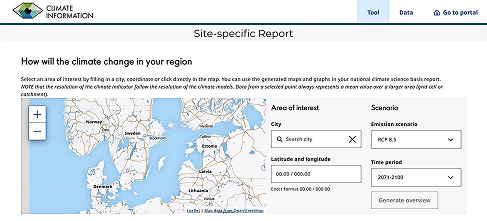Our World in Data is the flagship project of the Global Change Data Lab, with data and scientific guidance provided by researchers at the University of Oxford. The platform brings together structured, multi-dimensional, multi-topic, long-term data on the world’s largest challenges — including poverty, disease, hunger, climate change, health, the economy, and technology. Combined with interactive visualization tools, it helps users explore and analyze trends and current developments across these critical areas.
Learn More
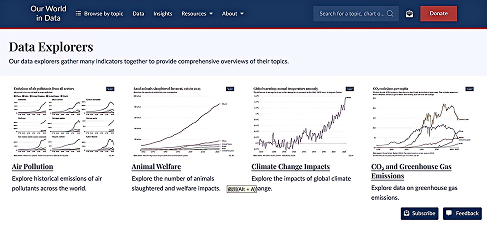
Climate Watch, managed by the World Resources Institute (WRI), is an open-data platform offering comprehensive climate-related datasets, visualizations, and insights to monitor national and global climate progress.
The Nationally Determined Contributions (NDC) Tracker is a dedicated module within Climate Watch that monitors the climate targets submitted by countries under the Paris Agreement. It enables users to compare NDC content, submission dates, emissions reduction ambition, adaptation measures, and priority sectors. The tracker also allows filtering and downloading of data by country, region, or target type.
Learn More
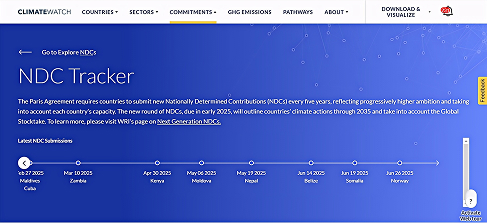
GHG Emissions module is one of the core features of Climate Watch. It compiles GHG emissions data from over 185 countries and regions dating back to 1990. The module allows for country and regional comparisons, as well as analysis of emission trajectories across different sectors such as energy, agriculture, industry, and land use. It also provides visual tools such as charts and maps, making it easier for users to intuitively understand emission trends and structures across countries.
Learn More
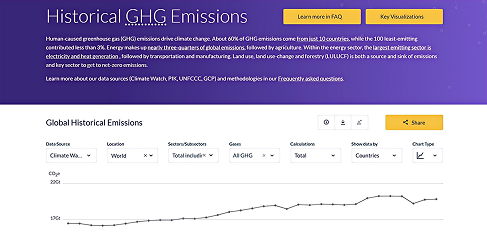
The Net-Zero Tracker / Long-Term Strategies (LTS) module is a key component of Climate Watch, focusing on countries' long-term emission reduction goals and net-zero commitments under the Paris Agreement framework. This module tracks whether countries have submitted their long-term low greenhouse gas emission development strategies (LTS), the status of their net-zero targets, target years, legal status, and implementation progress. It also supports country and regional comparisons, helping users gain a comprehensive understanding of global pathways and commitments toward carbon neutrality.
Learn More
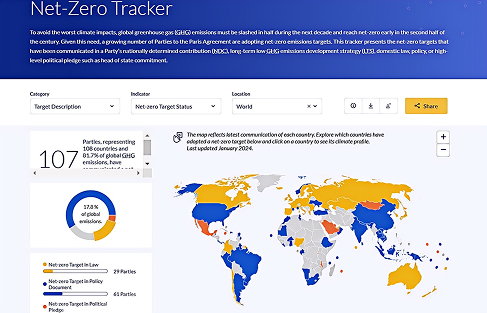
The Climate Information Portal is developed by the Swedish Meteorological and Hydrological Institute (SMHI), with support from the World Meteorological Organization (WMO), the World Climate Research Programme (WCRP), and the Green Climate Fund (GCF). The platform integrates advanced climate models and scenario simulation tools to help users understand the trends, impacts, and potential risks of future climate change. It provides high-quality climate data to support policymakers, researchers, and the public in developing effective strategies for climate adaptation and mitigation.
Learn More
